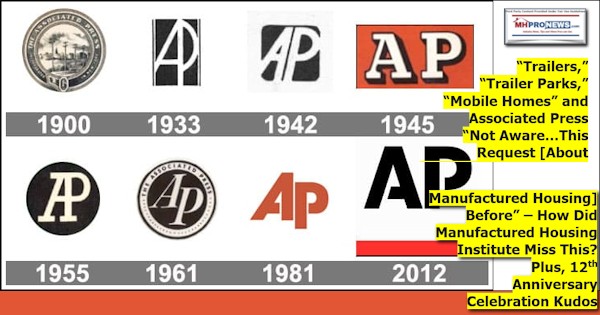Don’t expect the following to be found on the Manufactured Housing Institute (MHI) website’s ‘news’ sections any time soon, if ever. Why? Because this report from different parts of the country tell an evidence-based story that runs counter to the narrative spun by MHI and their industry allies. While MHI leaders have praised CEO Lesli Gooch, they downplay or ignore the evidence that MHI has failed at its own stated claims for much of the 21st century. This facts-evidence-analysis (FEA) with expert commentary will unpack insights from different mainstream news reports that MHI has apparently not mentioned on the public facing side of their website.
Rankin County residents frustrated with recent zoning ordinance
“The Mississippi Manufactured Housing Association hosted a public meeting Thursday, as they work to appeal a new zoning ordinance in Rankin County,” said the 16 WAPT News Jackson (MS) YouTube page, that featured the video posted above. While the Mississippi Manufactured Housing Association (MMHA) is a state association with ties to MHI, why isn’t there any mention of the federal Manufactured Housing Improvement Act of 2000 (a.k.a. MHIA, MHIA 2000, 2000 Reform Act, 2000 Reform Law) and its “enhanced preemption” provision by MMHA’s Jennifer Hall? Hall is well aware of the law and federal preemption authority over local zoning issues that are meant to limit manufactured home placement, because manufactured homes are routinely the most affordable kind of permanent housing. Federal preemption has been previously invoked by HUD in Hall’s state of MS, see the document linked here. See the related reports below.


NIMBY means “Not in My Back Yard.” For decades, manufactured housing has been subjected to zoning restrictions that are routinely designed to zone out public access to HUD Code manufactured homes, or pre-HUD Code mobile homes before them. But federal lawmakers, by a widely bipartisan vote, enacted the Manufactured Housing Improvement Act (2000 Reform Law) which gave HUD the legal ability to step in and stop zoning discrimination against would-be manufactured homeowners.
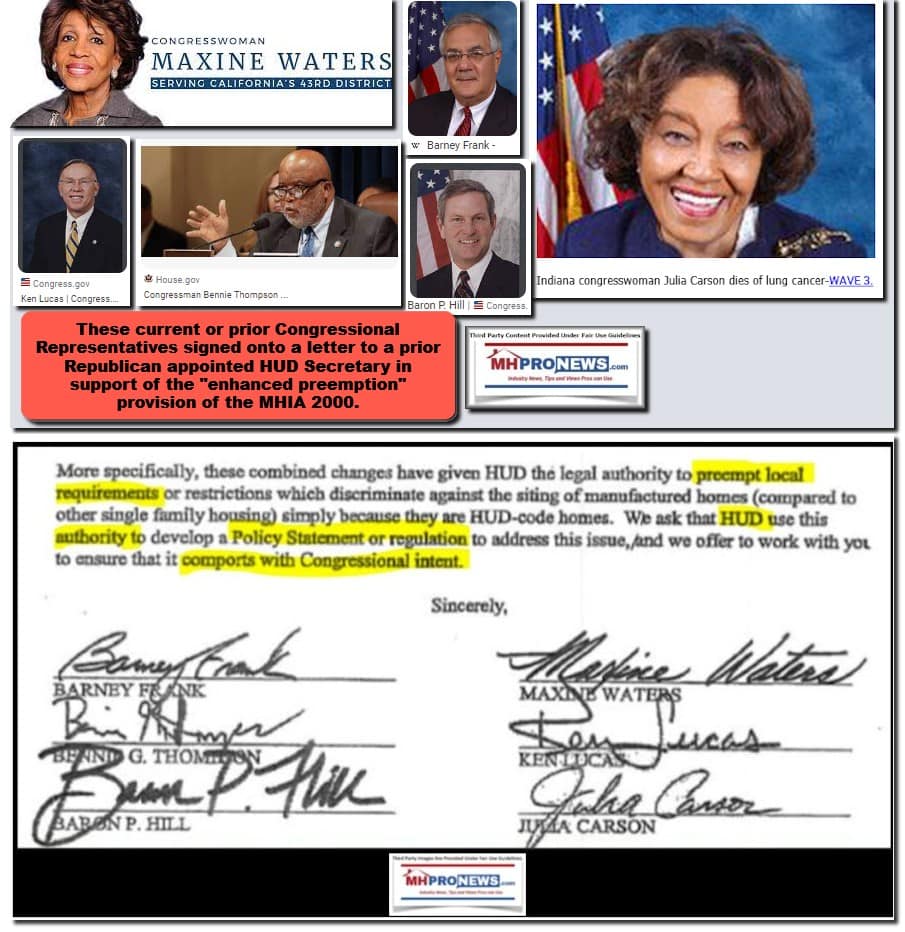
That pushback in favor of allowing more manufactured homes didn’t help with the zoning board in Odessa, TX, which is in the #1 state in the country for new HUD Code manufactured home sales.

Per the Odessa American Online are the following remarks.
After listening to more than two hours of negative comments from Odessans about proposed changes to mobile home ordinances, the Odessa Planning and Zoning Commission voted 7-1 against the changes.
The vote doesn’t end the matter, however. The City Council will discuss the matter on May 27 before voting on the proposal at a later date.
Councilman Eddie Mitchell and other council members asked staff to look at the possibility of tightening up the rules on where new mobile homes and manufactured homes can be installed.
Currently mobile homes are allowed in 10 districts throughout the city and Director of Development Elizabeth Shaughnessy and her staff are recommending that new mobile homes and manufactured homes only be allowed in two districts moving forward.
So, similar to the second regional news video report posted above, residents are asking for a defense of the right to keep or access manufactured housing. It is planning board members, perhaps supported by conventional builders and other anti-manufactured housing interests, that have pushed to limit manufactured housing.
“Even if the zoning changes, you can still stay there. … If you have a mobile home, that means, because you’re grandfathered in, you can continue living on the property. You can replace it, you can pass it on to your heirs. You can sell it even if the zoning changes,” Shaughnessy said.
Shaughnessy also said that if they pass this ordinance, people can still ask for “permission” to buy and place a new manufactured home. But that seems like a dodge, because if the city enacts such restrictions, then wouldn’t it obviously be an uphill fight for a resident to get “permission?” Also according to Odessa American Online.
Commission member Connie Coots immediately expressed concern the proposed ordinance would exacerbate Odessa’s shortage of affordable housing, but Shaughnessy told her only 40 families put in a new mobile home last year.
Commission member Bill Cleaver said the problem is that during the last oil boom, a lot of people bought up vacant lots and started putting “$30,000 mobile homes” next to $300,000 houses.
“People started to complain … does this de-evaluate my house? Does it put my house in danger because they’re a fire hazard?”
But isn’t the bigger question not that “only” forty families placed a manufactured home last year. Isn’t it the right of those families and others to have the ability to buy a home that they can afford?
A recent study in Lakeland, FL examined housing values where even older mobile homes, or more modern manufactured homes, were next door or across the street from each other and how that impacted values.
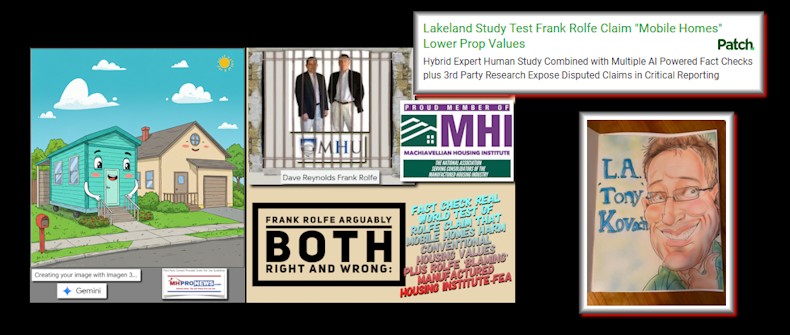

Federal law, per a range of sources quoted here, bars local jurisdictions from limiting or banning manufactured homes. But until federal officials routinely press for full implementation of “enhanced preemption” that unjustly limits manufactured housing placement, the problem may continue because of ‘special interests’ that arguably want to trap people in rentals or more expensive housing that they can’t afford or don’t want to spend more money to buy. One result of this tired pattern is more homelessness. The choice for many can come down to affordable manufactured homes, or living out of a car, tent, or other troubling alternatives.











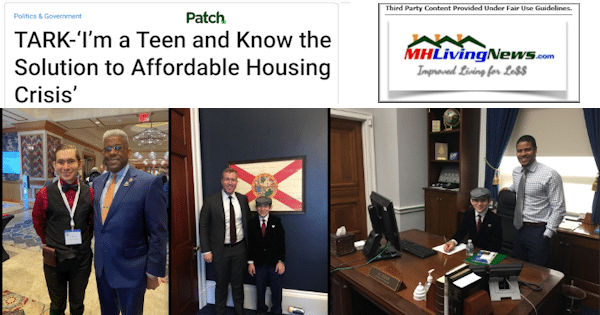




Mobile Home and Manufactured Home Living News explores the good, bad, and ugly realities that keep the most proven form of affordable home ownership under-appreciated and misunderstood. MHLivingNews provides third-party research and other resource collections and reports not found on other sites. We also provide thought provoking analysis that are designed to open minds and hearts. This is the widely acknowledged best source for authentic news on mobile and manufactured home living, as well as the policies that impact this segment of housing that provides 22 million Americans with good, surprisingly appealing living.
On our MHProNews sister-site and here on MHLivingNews, we lay out the facts and insights that others can’t or won’t do. That’s what makes our sister site and this location the runaway leaders for authentic information about affordable housing in general, the politics behind the problems, and manufactured homes specifically.
That’s a wrap on this installment of “News through the lens of manufactured homes and factory-built housing” © where “We Provide, You Decide.” © ## (Affordable housing, manufactured homes, reports, fact-checks, analysis, and commentary. Third-party images or content are provided under fair use guidelines for media.) (See Related Reports, further below. Text/image boxes often are hot-linked to other reports that can be access by clicking on them.)

By L.A. “Tony” Kovach – for MHLivingNews.com.
Tony earned a journalism scholarship and earned numerous awards in history and in manufactured housing. For example, he earned the prestigious Lottinville Award in history from the University of Oklahoma, where he studied history and business management. He’s a managing member and co-founder of LifeStyle Factory Homes, LLC, the parent company to MHProNews, and MHLivingNews.com. This article reflects the LLC’s and/or the writer’s position, and may or may not reflect the views of sponsors or supporters.
Connect on LinkedIn: http://www.linkedin.com/in/latonykovach
Recent and Related Reports:
The text/image boxes below are linked to other reports, which can be accessed by clicking on them.

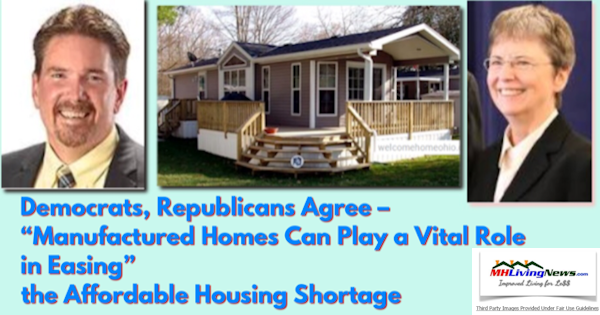
 manufacturedhomelivingnews.com Manufactured Home Living News
manufacturedhomelivingnews.com Manufactured Home Living News



